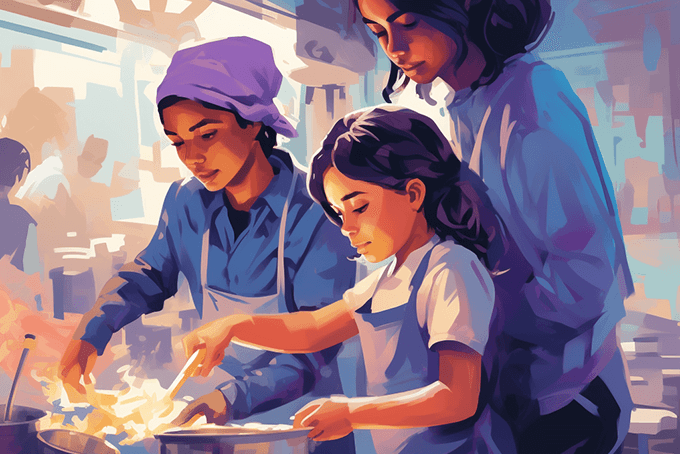We all want our children to be charitable and give back in some way, but telling them they have to tithe (the religious precept of giving 10 percent of their income) or hold back one-third of their allowance as a donation probably won’t make the concept stick when they get out on their own.As it turns out, much more subtle and even fun ways exist that make children think they came up with the idea of giving all on their own.
Play board games or online games
Kids not only identify with games and find them fun to play, but games get kids thinking about the choices they make and the consequences of those decisions.
Some games that have a charitable giving component include:
- Bank It! www.Simplyfun.com for ages 6 and up
- Thrive Time www.thrivetimegame.com for ages 13 and up
- Cash Flow 101 www.cashflowboardgame.com for ages 14 and up
- Stage Coach Island http://blog.wellsfargo.com/stagecoachisland/ for ages 14 and up
Parents can play the board games with their children and ask questions about the giving components. “Why do you think the game wants you to give back to the community?” “How do you feel about that?” And whatever other questions might be appropriate or come up during game play.
Introduce books about giving
Reading a book that conveys the benefits of giving is another subtle way to introduce philanthropy to your child. Books can be fiction or non-fiction, but screening them first is a good idea and you don’t want to promote a book that tells a child they “must” do something. That’s the surest way to get them to rebel.
Here are some suggested titles:
- One Hen by Katie Smith Milway for ages 7 to 11
- The Giving Tree by Shel Silverstein for ages 4 to 8
- Meet Genna & Russ, the Generous Kids (www.gennarusskids.com) for ages 2 to 6
- Kathleen’s Story by Lurlene McDaniel for young adults
You can read aloud to younger children, ask them to predict what is going to happen in the story, which will open up opportunities for discussing the why’s and how’s of being charitable. Ask older children what they thought about the story and what was the message they perceived.
Teaching by example
Kids watch what you do even when you’re not always aware of it. They tend to follow your example, at least early in their lives. However, if you’ve forced them to do something like tithe, in later years, they are likely to revolt.
How to be a role model:
- Talk about what charity means and how organizations help others
- Donate items to your local food bank or to places that pick up used household items
- Tell your children why you put money in the collection plate at religious organization or write out a check to a disaster relief organization
- Help an elderly neighbor with yard work, cook dinner for a family in need or do some other random act of kindness
- Participate in your school, town or your religious institution’s community service projects such as serving food in a soup kitchen, cleaning up a park for Earth Day, making meals for the needy
- Save change in a jar and donate it to a specific charity
Be sure to mention to your children that charity can come in many different forms and isn’t always about giving money. Sometimes giving of your time can help someone more.
Tell them you don’t perform charitable works because you expect something in return.
Educating children about giving back to others should never include a lecture and absolutes like “you have to.” Make them want to do it. Playing a game, reading a book or watching their parents’ actions will make charity fun, not a chore.
